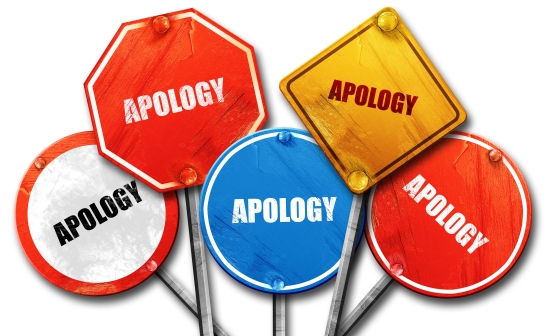The Art of Apologizing
Is there an art of apologizing? Yes, there is.
“Apologizing” means to express regret and remorse for something you have done. Defining the word helps identify what apologizing is and isn’t.
Here are some things to consider when apologizing:
It’s Wrong to Apologize for Something you Didn’t Do.
It’s sometimes tempting to give in to someone who is angry and accusing you of doing something and demanding you apologize, but it isn’t healthy to do so. The most you can do in this case is to state you’re sorry the person is upset.
It’s Wrong to Apologize to Someone who will use Your Admission to Hurt You.
For instance, if your apology will embolden this person in the belief you’re to blame for everything, then consider whether the apology is worth the fallout since it won’t help the relationship anyway.
It’s Wrong to Apologize When you Aren’t Sorry.
When your mom or dad demanded you mouth the words, “Sorry,” you were doing what you were told to do. As an adult, you need to be honest. If you don’t regret doing it, then don’t apologize. Chances are the person will know you aren’t sincere.
It’s Wrong to Apologize When you don’t Intend to Change your Actions in the Future.
This applies to actions that are reoccurring and will happen again. How can you really be sorry when you don’t intend to change? People tend to grow weary of empty words. If you are truly regretting what you did, you will do what you need to do to not do it again.
There are times it’s right to include some type of restitution for the harm you have done.
This is the right thing to do when the person suffered as a result of your action. This is easy if you can repair the specific damage or compensate someone monetarily.
If it isn’t the case, you can do things to help that are kind and caring. You can offer tokens that heal such as baking a cake, bringing flowers, buying dinner, helping with tasks, babysitting, or anything else that attempts to acknowledge the damage you have caused.
It can be right to offer an explanation or excuse for your action and it can be wrong.
The other meaning for “apology” is to offer a defense. There are times that explaining your motive or state of mind actually helps the other person to forgive you.
It takes wisdom to know when to explain and when not to explain, because there are times an explanation sounds like an excuse or justification and it is better to simply say, “I am sorry I hurt you. I was wrong. Will you forgive me?”
Consider practicing the art of apologizing in your relationships.
Can a three year old teach an adult about forgiveness? Click here to learn how?






